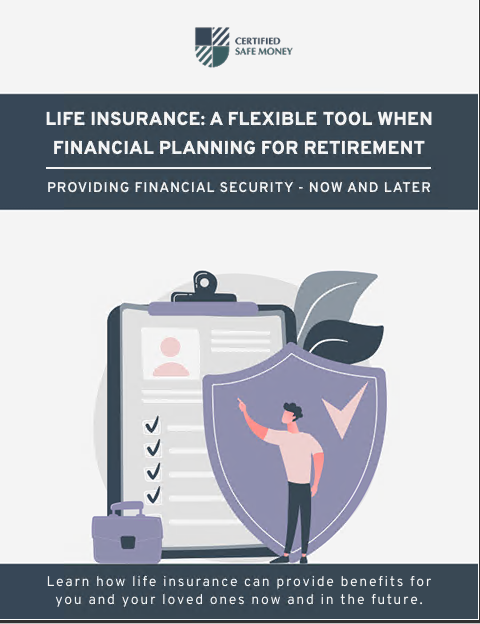There are three main types of life insurance: term life, whole life, and universal life. Both the pros and cons of each variety are different. So, which option do you think best fits your needs? To help you choose the best life insurance policy for your situation, we’ll review the benefits and drawbacks of several options in this post.
What is Universal Life? The permanent insurance known as “universal life” provides adaptable protection and cash value growth. A universal life insurance policy is intended to cover the policyholder for the duration of their life, provided that the policy premiums are paid on time. In addition, a universal life policy‘s cash value and death payout grow free of federal income taxes. There are many pluses to having a universal life insurance policy.
The Pros of Universal Life Insurance include the following:
- The death benefit and cash value of a universal life policy accrue interest and accumulate without being taxed on their gains until the policyholder withdraws the money.
- A percentage of your premium payment for a universal life insurance policy goes toward paying the death benefit, which you can withdraw or borrow against. The cash value of the policy likewise increases with every premium payment. After some time, you may be able to borrow from or take a withdrawal from the policy’s cash value (the available amount will vary by company). Each insurance provider and policy has guidelines on when and how this is possible. It’s crucial to remember that doing so could lessen your death benefit, trigger tax consequences, or even cause your policy to lapse.
- The cash value of your policy earns interest.
- According to the Insurance Information Institute, a universal life policy’s cash value should yield interest rates that are competitive with the money market. It’s worth noting that the interest rate will go up and down with market conditions, so the amount of income you earn could decrease. However, with a minimum performance guarantee on the policy, some businesses offer security against that.
- Adaptability in premiums: If the cash value of your account is sufficient to cover the costs, you may be able to reduce or suspend your premium payments on a universal life policy. When money is tight, it’s always a good idea to seek methods to save costs, and this can be one of them. But the III warns that there could be drawbacks as well. For example, if you utilize the account’s cash value to pay for premiums, your coverage may lapse.
- Your premiums may be adjustable, but you must always have a cash value in your insurance, or it will expire (meaning you no longer have coverage). However, your insurance company may provide you a “grace period,” during which you can make payments to get your policy’s cash value back in the black before your coverage expires. To find out more, please go to your insurance policy or contact your insurance company directly.
- The death benefit may be modified: The death benefit of a universal life policy can be adjusted as needed. There may come a time when you wish to raise the death benefit. This is something that certain insurance companies will permit once you pass a medical exam. You can lower the premiums of your coverage by decreasing the death benefit. It’s important to remember that the premium you pay could go up if you boost the policy’s death benefit.
Possible disadvantages of universal life insurance include:
- Universal life insurance policies have higher premiums than term life insurance policies because they provide more options for coverage and cash value building.
- Difficulty understanding all the features and alternatives offered due to the policy’s complexity. Universal life insurance might be difficult to comprehend. It’s essential to see a professional financial adviser and get the best coverage for your needs.
Types of Universal Life Insurance
After weighing the benefits and drawbacks of universal life insurance, we’ll examine the various plans available: Universal life insurance: Universal life is permanent life insurance that lets you change your premiums and build up cash value. Universal life insurance is more expensive than whole life and term life policies, but it gives you more options and room for growth.
Whole life insurance has fixed premiums, assured death benefits, and cash value buildup. Although whole life insurance policies are more expensive than term policies, they provide greater financial security and predictability.
Term life insurance: This temporary life insurance provides coverage for a set amount of time, typically between 10 and 20 years. It has cheaper premiums than whole life and universal life insurance and does not accumulate cash value.
Consult a professional financial expert to be sure you’re obtaining the coverage you need at a price you can afford before deciding on a policy. Even though universal life insurance is an excellent option, it is not great for everyone. If you want coverage that may be customized to your unique needs and the potential that your cash worth can increase, think about this portfolio. Before settling on a course of action, it’s essential to weigh all of your choices.
How Should One Go About Buying It?
It’s recommended that you consult with a licensed life insurance agent when you’re ready to begin your life insurance search. They can assist you in evaluating several plans and selecting the most suitable one. They can also educate you on the various life insurance policies and their features. Make sure you shop around for universal life insurance and compare policies and providers before settling on one. Finding the right coverage might be challenging due to the variety of choices. Be sure to inquire about the pricing, the coverage details, and benefits of each policy.
Contact Information:
Email: dakota1339@aol.com
Phone: 4022508277
Bio:
Carl Wyllie is an advisor focused in areas of Medicare, retirement, estate planning, and crisis planning. Carl works with individuals of all ages in planning for their retirement. He is uniquely effective in building working relationships between their families and elder care law attorneys to assist them in avoiding a healthcare crisis. Carl is particularly sensitive to helping provide the means for his clients to maintain their independence and dignity when a change in their health occurs due to the natural aging process.














